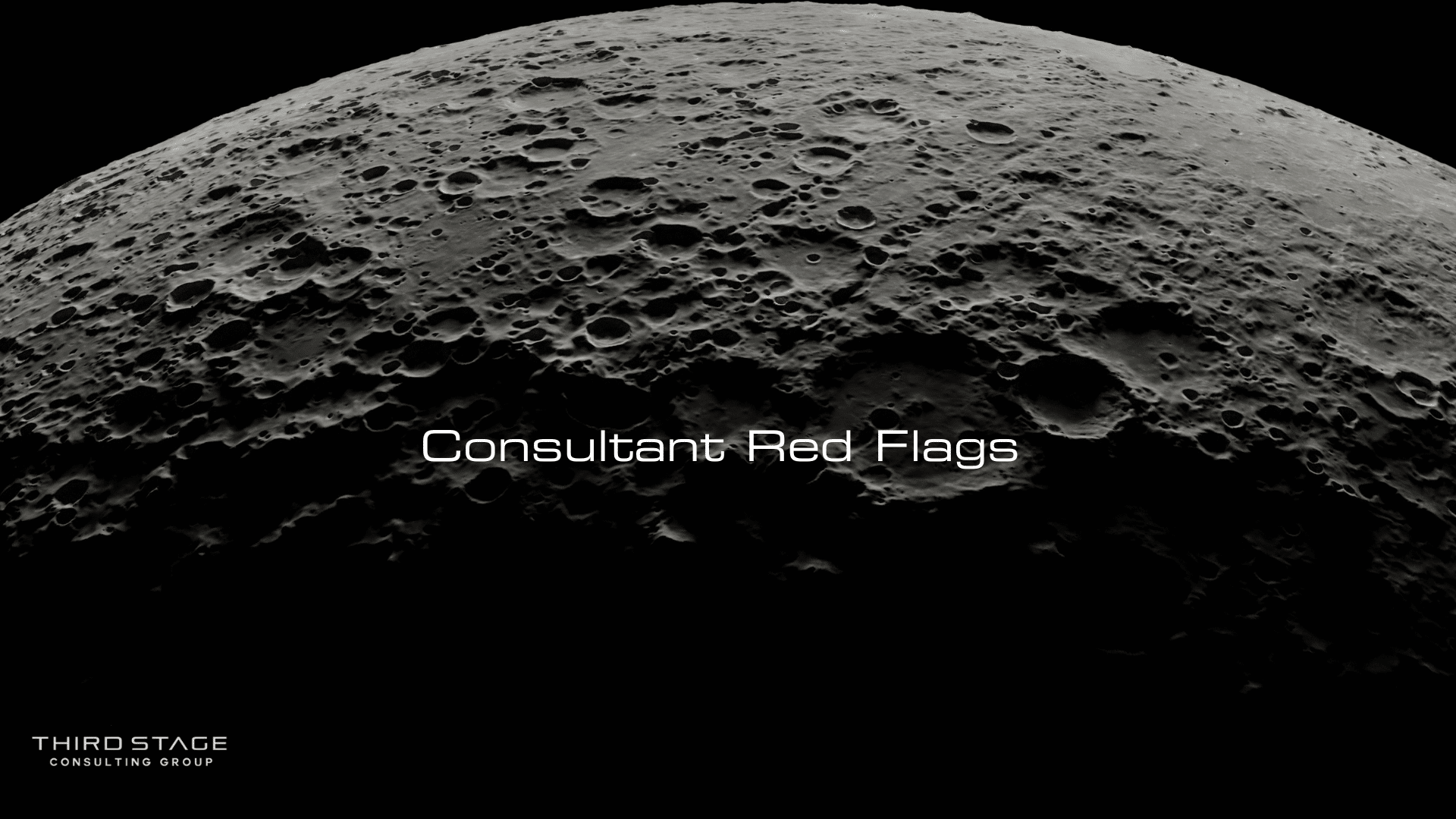When hiring a consultant, especially for major projects like digital transformation, ERP implementation, or strategic planning, it’s crucial to ensure their advice is unbiased and focused solely on your organization’s success. Unfortunately, the consulting industry has long been plagued by conflicts of interest that can compromise the quality of recommendations. Despite the recent growth of independent consulting firms, businesses must remain vigilant. Here are the key red flags to watch out for that may indicate a consultant has conflicts of interest.
Table of Contents
Toggle1. Financial Incentives from Vendors
A significant conflict of interest arises when a consultant has financial ties to specific software or technology vendors. These ties often come in the form of kickbacks, commissions, or incentives for recommending a particular product or solution. This financial arrangement can skew the consultant’s objectivity, leading them to push products that may not align with your organization’s unique needs.
What to Watch For:
- Unexplained Vendor Preferences: If a consultant consistently pushes one or two vendors without evaluating others, they might have financial incentives at play.
- No Transparency in Fee Structures: A lack of clarity on how the consultant is compensated, especially regarding vendor relationships.
What You Can Do:
- Ask if they have vendor partnerships and request details on how they’re compensated.
- Ensure their compensation is tied solely to the services they provide to your organization, not external vendors.
2. Lack of Independence
Not all consulting firms operate independently. Some are directly affiliated with larger organizations, vendors, or systems integrators. These affiliations may pressure the consultant to prioritize the interests of their partners over your company’s goals.
Indicators of Non-Independence:
- The firm is openly partnered with specific vendors.
- Their website or marketing materials highlight vendor relationships as a selling point.
- Recommendations are limited to a narrow range of solutions tied to their affiliates.
What You Can Do:
Seek truly independent consulting firms that pride themselves on vendor-agnostic approaches. Independent firms are more likely to recommend solutions that align with your unique business requirements.
3. Limited Exploration of Options
A consultant should approach your project with a comprehensive understanding of the market and explore all viable options before making recommendations. If they seem to quickly settle on a solution or dismiss alternative options, it may indicate a conflict of interest.
What to Watch For:
- Recommendations presented without detailed analysis or comparison of alternatives.
- Dismissal of competitor products without clear justification.
What You Can Do:
Ask for detailed assessments, side-by-side comparisons, and clear reasoning behind their recommendations.
4. Overemphasis on Implementation Services
Some consultants push for extended implementation projects because they stand to gain financially from additional service hours. If a consultant overcomplicates the scope or emphasizes long-term engagements without clear value, this could signal a financial conflict of interest.
What to Watch For:
- Excessive focus on selling implementation services rather than strategy or advisory work.
- Unnecessary complexity in proposed solutions that extend timelines and budgets.
What You Can Do:
Scrutinize the scope of work and ensure it’s aligned with your business goals. Consider a phased approach that limits initial engagement to strategic advisory before committing to long-term implementation services.
5. Inconsistent or Vague Communication
A consultant who avoids direct answers to questions about their affiliations, compensation model, or evaluation process may be hiding a conflict of interest. Transparency and honesty are critical traits of a trustworthy consultant.
What to Watch For:
- Evasive answers about potential vendor relationships.
- Lack of clarity in explaining how recommendations are developed.
- Hesitation to provide references or case studies from past clients.
What You Can Do:
Push for full transparency from the start of your engagement. If a consultant is unwilling to answer your questions or provide detailed information, it may be best to look elsewhere.
6. High Dependency on a Single Solution or Vendor
If a consultant strongly favors a single vendor or solution, it’s worth investigating why. While some tools or systems may be genuinely better suited to your needs, an over-reliance on one option could indicate a conflict of interest.
What to Watch For:
- Consistent alignment with a specific vendor, even across diverse client needs.
- No effort to explore alternative vendors or explain why others were not considered.
What You Can Do:
Demand a competitive selection process where multiple vendors are evaluated against criteria tailored to your business needs.
7. Inadequate Client References
A reputable consultant should be able to provide client references that speak to their independence and integrity. If a consultant struggles to produce verifiable references or their references appear biased, it could be a red flag.
What to Watch For:
- References that overly emphasize vendor relationships rather than client outcomes.
- Vague or overly positive testimonials without specifics.
What You Can Do:
Request direct client references, preferably from businesses with similar challenges and objectives to yours. Ask those references about the consultant’s independence and transparency.
Conclusion
While conflicts of interest are unfortunately common in the consulting industry, they’re not inevitable. By staying vigilant and asking the right questions, you can identify red flags early and ensure your chosen consultant prioritizes your organization’s success over external influences. Seek independent firms, prioritize transparency, and demand thorough evaluations to build a partnership grounded in trust and mutual benefit.






